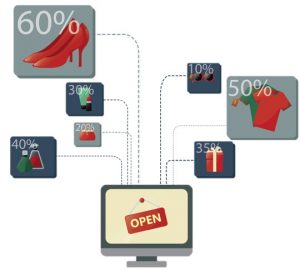Your Private Data Is Up for Sale – With the Blessing of The US Senate
The US Senate has voted to allow Internet Service Providers (ISPs) to sell the web browsing histories and geolocation data of their customers to advertisers and partner companies. Yes, you read that right, your privacy is up for sale with the support of the US Senate. Nothing, it seems, is sacred, or private, anymore.
So out of the blue is this turn of events that even some senators can’t quite believe it just happened. One such senator, Ed Markey, was quoted as saying that ISP now stands for Information Sold for Profit and Invading Subscriber Privacy.
What Exactly Is Going to Change?
The likes of Google and Facebook have been free to make astounding amounts of money from selling users data to the advertisers. One of the reasons they can achieve such financial heights is because the more a company knows about you, the more effectively they can target their marketing. So, access to your likes, dislikes, shopping habits, leisure activities, friendships, and religious and political views and values, are invaluable.
As this is the case, you might be wondering what all the fuss is about. Well, while Google and Facebook can do this with your data, ISP’s up until now haven’t been able to. And considering the depth and breadth of information about users to which they are privy, that’s been a really good thing. Just think what information they gather from you in just 5 minutes of late night web surfing! It would make Facebook sick with envy, and you sick for many other reasons.
Until this vote, the hands of the ISPs were tied by the Federal Communications Commission (FCC). In October 2016, the FCC approved a new privacy ruling that required opt-in consent from ISP users for their information to be sold. While this didn’t prevent ISPs from making money from users, it did limit them to those very few users who were willing to pass over their privacy rights. The new rules were due to come into effect in December 2017.
As you can imagine, the ISPs were not very happy with this idea, so in true disgruntled big company style, they began to lobby to have the new regulations blocked; and yes, they have now, under a Republican-dominated senate, succeeded. The outcry from those looking to protect the privacy of individuals has already begun in earnest.
The policy counsel for Free Press Action Aid, Gaurav Laroia, stated that: “Senate Republicans just struck a massive blow against everyone who uses the internet, dismantling rules protecting people’s private information from unauthorized use and abuse by cable and phone companies.”
While Dallas Harris, on behalf of Public Knowledge, a digital rights group stated: “This vote is a clear sign that American interests come second to those of broadband providers. Without the FCC’s broadband privacy rules, Americans go from being internet users to marketing data—from people to the product.”
So, we are are bracing ourselves for America the free – where everything is up for sale.
 But How Does Congress Get to Make this Decision?
But How Does Congress Get to Make this Decision?
The key to understanding this situation lies within an infrequently utilized and highly contentious law known as the Congressional Review Act. The contentiousness arises largely because when implemented by a Senate majority, the minority party is virtually powerless to halt its progress. In this particular instance, the vote split entirely along partisan boundaries, ultimately siding with the Republican majority. As a result of this decision, current regulations prevent the FCC from just adopting a similar rule down the line. To put it simply, under these circumstances, there are almost no further steps that can be taken to safeguard the privacy of those utilizing Internet Service Providers henceforth.
The Reasoning Behind the Decision
Of course, both the ISPs and the Republicans behind the vote, have justified the move by stating that, rather than it being about money, it is about innovation. They believe that the FCC rules were stifling such innovation apparently. Furthermore, they allege that users were confused by the different rules that applied to Facebook and Google and that it was unfair to the ISPs. The chief campaigner even went as far as to say:
“Passing my resolution is the first step toward restoring a consumer-friendly approach to internet privacy regulation that empowers consumers to make informed choices on if and how their data can be shared.” (Senator Jeff Flake)
Because of course, an opt-in system isn’t consumer friendly and doesn’t allow for empowered, informed choices to be made! There seems to be a bit of a misalignment between the general understanding of informed choice and that understood by the Senator and his allies. This view was reflected in the response of Laroia, who could almost be heard choking on his coffee on hearing the Senator’s view. Laroia stated:
“At their core these [FCC] rules simply would give people the right to decide for themselves whether to allow their ISPs to share or sell their personal information, including their web-browsing histories. Senator Jeff Flake and his colleagues have the audacity to claim it was necessary to overturn the rules to protect people’s online privacy. That’s false. Their comments are rhetoric dressed up to cloak their real intentions: letting internet service providers profit off your private information.”
So, consumers unable to decide whether to tick a box or not, are being given more freedom of choice, by having the choice taken away from them, and are being told it's for their own good. Something really doesn’t add up, just as Laroia suggests.
So What Now?
Firstly, it’s important not to panic. That just leads to rash decisions, and the public has made enough of those in recent times. Secondly, spread the word and ensure everyone knows who has access to their data, what it is going to be used for, and what those in charge are doing about it. The final part should be simple, but money talks, so basically, they are doing nothing at all.
Finally, you need to protect yourself, and fortunately, that's still possible. In fact, not only is it possible, but it is very simple as well. The answer is to start using a VPN. Find one that works for you, and in which you are confident, and start hiding your search information and data from your ISP. If they cannot see the data, they cannot pass it on. All they will know is that you are connected to a VPN server, and at this point in time, they can do absolutely nothing about that.
Editor's Note: We value our relationship with our readers, and we strive to earn your trust through transparency and integrity. We are in the same ownership group as some of the industry-leading products reviewed on this site: Intego, Cyberghost, ExpressVPN, and Private Internet Access. However, this does not affect our review process, as we adhere to a strict testing methodology.
Your data is exposed to the websites you visit!
Your IP Address:
Your Location:
Your Internet Provider:
The information above can be used to track you, target you for ads, and monitor what you do online.
VPNs can help you hide this information from websites so that you are protected at all times. We recommend ExpressVPN — the #1 VPN out of over 350 providers we've tested. It has military-grade encryption and privacy features that will ensure your digital security, plus — it's currently offering 61% off.




Please, comment on how to improve this article. Your feedback matters!